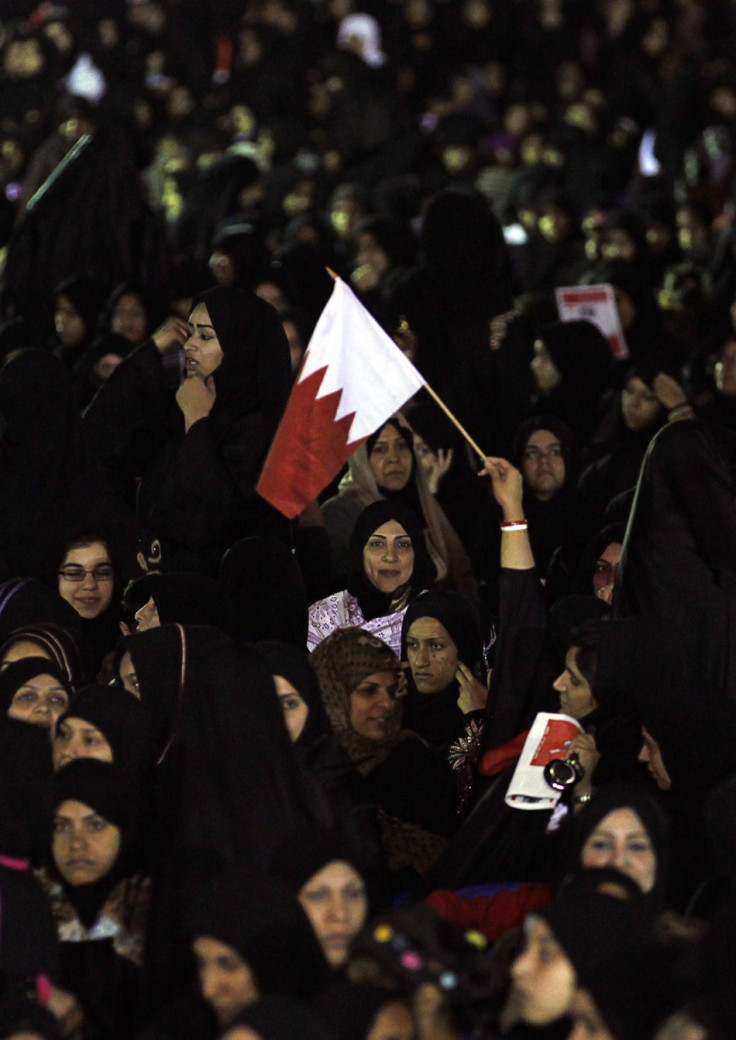Bahrain Uncovered pt 2: Divided Political Landscape

Despite being a small island the Gulf state of Bahrain benefits from a relatively vibrant civil society - but activists want more freedom. The first anniversary of pro-democracy protests on 14 January are increasing tensions.
In the 1950s the country went through a series of popular uprisings against the British presence. Pressure from the grass roots led to the 1973 constitution and a partially elected national assembly with limited political powers was set up to calm the unrest.
But positive reforms were short-lived and in 1975 the government suspended the constitution under the State Security Law. The restrictions were to last for more than a quarter of a century.
In 2002, the new king, Hamad al-Khalifa, brought in a general amnesty, dissolved the State Security Courts, abrogated the State Security Law and promised more democratic reforms.
The Bahrain National Action Charter, approved a year earlier on 14 February, 2001, incorporated the amended part of the suspended 1973 constitution and introduced a two-chamber system comprising an elected lower and an appointed upper council. Executive power remained in the king's hands and he retained the right to appoint all ministers.
But the optimism surrounding the reforms has evaporated and most of the current dissatisfaction revolves around King Hamad's unfulfilled promise of political reforms.
Al-Wefaq National Islamic Society
Al-Wefaq was founded on 7 November, 2001, as an umbrella groups of different political and religious strands of the Shia community. It represent the largest opposition group.
The government has accused Al-Wefaq of plotting with Iran to overthrow the Bahrain regime. The accusations have been denied.
"Al -Wefaq is not trying to reproduce the Iranian model in Bahrain. One of its main demands is not the overthrow of the regime but a transfer to constitutional monarchy," explains member Ali Alaswad , a former MP. "Our main concern is that executive power is concentrated in the king's hands.
"We just want to have an elected government, an elected prime minister. What is irrational in that?
"Members of the opposition and protesters are paying the price for speaking up. We cannot continue having a prime minister who is appointed by the king forever. The population needs to be more involved in the political sphere."
Al-Wefaq has signed the Manama document, a set of demands for constituional reform, with other opposition groups including the National Democratic Action Society (Waad), the Nationalist Democratic Assembly, the National Democratic Assemblage and Al-Ekha National Society.
While much has been said about Al-Wefaq less is known about Bahrain's other political societies and groups:
The Islamic National Forum/Al-Minbar al-Watani al-Islami: Al-Minbar is a Sunni group established in 2001. It is pro-government with ties to the regime and is considered to be the branch of the Muslim Brotherhood in Bahrain. It won seven seats in the 2006 parliamentary elections but only two in 2010.
The Islamic Authenticity Society/Jamiaeeyat al-Asala al-Islamiya
Al-Asala represents Bahrain's Salafi movement. "Partly as a result of Saudi funding, it has gained popularity to the detriment of other Sunni schools of thought as well as Sufism," says the Crisis Group thinktank. The society won only three seats in the 2010 parliamentary elections.
The Shirazis/Al-Shiraziyoun
The movement's name derives from Ayatollah Muhammad al-Shirazi , who created a secret political organisation, the Movement of the Preaching Vanguards, in Iraq at the end of the 1960s to fight Saddam Hussein and combat secularism.
After the Iranian revolution, Shirazi leaders moved to Iran and established other branches, including Bahrain. The Islamic Front for the Liberation of Bahrain was set up but its leaders fled the country after the regime foiled a 1981 coup believed to have been backed by Iran.
They returned to Bahrain after the 2002 amnesty and formed the Islamic Action Society, which boycotted the 2010 elections. Shirazis supporters were very active during the 2011 protests.
National Brotherhood Society/Jamiaeeyat al-Ikhaa al-Watani
Al-ikaa represents Shia of Persian descent in Bahrain. At first reluctant to join the 2011 protests for fear of being accused of plotting with Iran, the movement now appears to be more willing to support the protests.
Leftists groups:
There are three licensed leftist groups in Bahrain.
Al-Wa'ad promotes Arab nationalism. It appeals to both Sunni and Shia and was the first opposition group to back the 2011 protests.
Al-Minbar Democratic Progressive Society was formed in 2002 but its roots are in the National Liberal Front which was first established in 1965 to fight British occupation. It has a small membership.
The Nationalist Democratic gathering is the smallest of the leftist groups and has a mainly Sunni support-base.
© Copyright IBTimes 2025. All rights reserved.





















